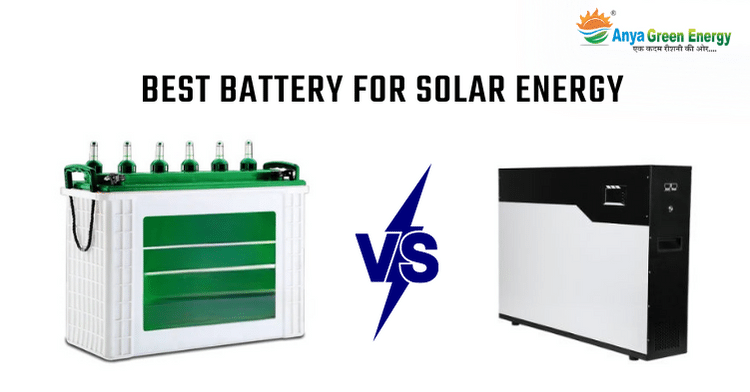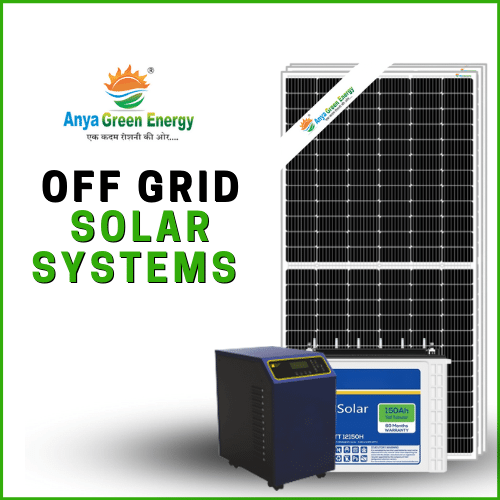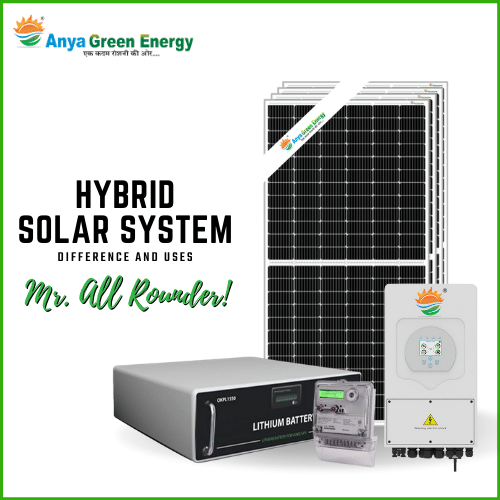Best Battery for solar energy : Lead Acid Battery vs Lithium Ion Battery

As solar energy continues to gain popularity as a sustainable and efficient source of power, the choice of battery storage becomes increasingly important. The two most common options for solar energy storage are lead-acid and lithium-ion batteries. In this blog post, we will discuss into the characteristics, advantages and drawbacks of both battery types. By understanding the differences, you can make an informed decision on which battery is best suited for your solar energy system.
Lead-Acid Batteries :
Lead-acid batteries have been the traditional choice for energy storage in solar systems for many years. They are known for their robustness and reliability. Here are some key points to consider:
1. Cost: Lead-acid batteries are generally more affordable compared to lithium-ion batteries, making them an attractive option for budget-conscious homeowners or businesses.
2. Capacity: Lead-acid batteries are available in a wide range of capacities, allowing you to choose the right size to meet your energy storage needs. They are suitable for both small and large-scale solar systems.
3. Deep cycling capability: Lead-acid batteries perform well in deep cycling applications, meaning they can be discharged and recharged frequently without significant impact on their lifespan.
4. Maintenance: These batteries require regular maintenance, including checking and topping up electrolyte levels, ensuring proper ventilation, and monitoring for sulfation. Failure to maintain lead-acid batteries can lead to reduced performance and lifespan.
5. Environmental impact: Lead-acid batteries contain toxic materials like lead and sulfuric acid, making their disposal more challenging. Proper recycling and disposal processes are crucial to prevent environmental contamination.
Lithium ion Battery :
Lithium ion Battery have gained significant popularity in recent years, primarily due to their higher energy density and improved performance. Let’s explore the advantages and considerations associated with Lithium ion Battery.
1. Energy density: Lithium ion Battery offer a higher energy density, meaning they can store more energy in a smaller and lighter package. This makes them ideal for applications where space is limited.
2. Efficiency: Lithium ion Battery have higher charge and discharge efficiencies compared to lead-acid batteries. This translates to a more efficient use of the stored energy and reduced energy losses.
3. Lifespan: Lithium ion Battery generally have a longer lifespan compared to lead-acid batteries. They can endure more charge-discharge cycles without significant degradation, providing a longer service life.
4. Maintenance: Lithium ion Battery are virtually maintenance-free. Unlike lead-acid batteries, they do not require regular electrolyte checks or other maintenance tasks.
5. Safety: Lithium-ion batteries are designed with built-in safety features to prevent overcharging, overheating, and other potential risks. However, it is essential to use high-quality lithium-ion batteries and follow proper installation guidelines to ensure safe operation.
Conclusion :
Both lead-acid and lithium-ion batteries have their unique characteristics and benefits for solar energy storage. Lead-acid batteries are a cost-effective and reliable option, especially for those on a budget. On the other hand, lithium-ion batteries offer higher energy density, improved efficiency, and longer lifespan, making them a preferred choice for many solar system owners.
When selecting the right battery for your solar energy system, consider factors such as your budget, space limitations, maintenance capabilities, and long-term energy requirements. Consulting with a solar energy professional can provide valuable guidance to help you make an informed decision that aligns with your specific needs and goals.


